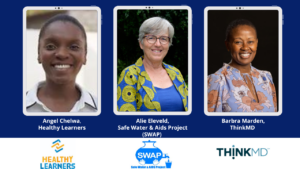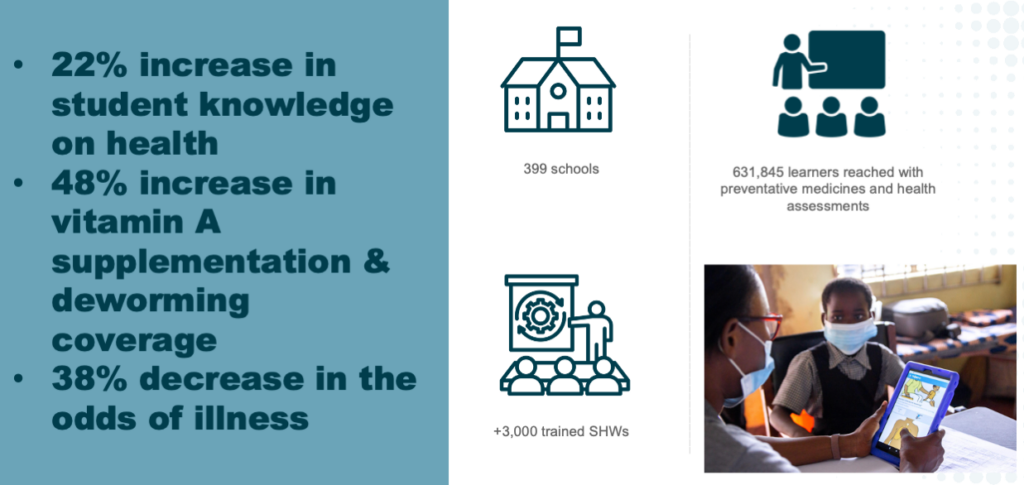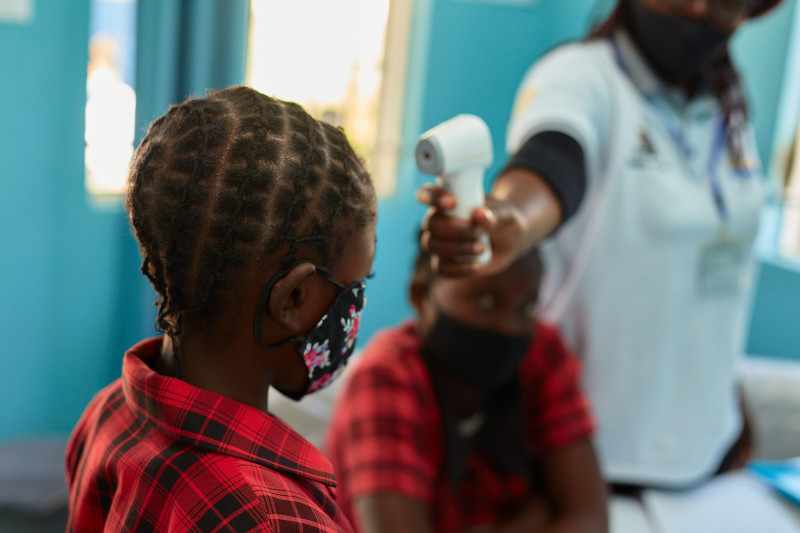Barbra Marden, Partner Success Lead, THINKMD
Hello everyone,
I had the pleasure of presenting at the IiH Innovator Networking Session on March 15th, where myself and Angel Chelwa, VP Operations for Healthy Learners in Zambia, discussed the topic of “From innovation pilots to scale”. In particular, we spoke about the importance of focusing on school-aged children’s health, an often-overlooked demographic in child health programs and how our partnership has helped to scale a successful global health innovation pilot.

As we all know, childhood illnesses can negatively impact learning and result in long-term consequences on children’s physical, emotional, and psychological development. Unfortunately, many child health programs focus primarily on those under the age of five, leaving school-aged children untreated and vulnerable. While many countries have school health frameworks or policies, the coverage and scope of existing school health programs are often limited.
This is where Healthy Learners comes in. The organization partners with the Zambian government to bring healthcare to where children already are – their schools. They train and equip classroom teachers as School Health Workers (SHWs), who provide health education, facilitative care, and health assessments via THINKMD’s clinical intelligence technology. By engaging the entire school community, including school administrators, health facility staff, parent leaders, and students, Healthy Learners establishes fast-track referral systems between schools and health centers, and promotes peer-to-peer support through “buddy groups”.
THINKMD’s platform enables SHWs to perform accurate clinical assessments, identify which students are sick, what illnesses they may have, and if they need to be referred to a clinic. The platform is based on logic used by physicians, providing clinical guidance while collecting important health data digitally. Data analytics enable public schools to serve as population health and syndromic surveillance hubs for outbreaks like COVID-19.

Through the Healthy Learners program, there have been significant changes in health-seeking behavior and improvements in health outcomes. Trust barriers between schools and clinics have also been broken down, enabling ongoing professional mentorship of SHWs. This cost-efficient and scalable model has been adopted and codified as policy by both Ministries of Health and Education in Zambia.
Our successful partnership has enabled us to reach over 600,000 students, or 15% of Zambia’s public primary school population.
The school model is designed to build the capacity of government structures at the province and district level. Healthy Learners’ relationships with the Ministries of Health and Education have been critical for scale, and the adoption of the THINKMD platform in the program has transformed the ability to impact students and their health via high-quality, cost-effective health services in Zambia.
In conclusion, I want to draw attention to the fact that focusing on school-aged children’s health is critical for their overall well-being and success. The Healthy Learners program has demonstrated that by leveraging existing infrastructure, such as schools and teachers, we can provide access to healthcare for a large number of children who would otherwise go untreated. By working closely with government structures and adopting innovative technology solutions, we can scale our impact and improve the health outcomes of even more children in need. Lastly, I want to also point out how critical implementing partners are to successful global health pilots, driving in-country relationships and building strong foundations for scale.
Thank you for your time and attention, and I hope to continue this important conversation with you all.

